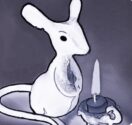Q; “What issues can you help me with at CANDLE MOUSE COUNSELLING?“
Issues such as Depression, Anxiety, Perfectionism, Being assertive, Bereavement, Grief and Loss, Bullying, Burn-out, Communication, Self confidence, Covid 19 Anxiety, Disordered eating, Family problems, Fear, Loneliness, sadness, Infertility, Insecurity, Jealousy, Low self esteem, Miscarriage, Redundancy, Relationships, Retirement, Sleep problems, Stress, Trauma, Workplace stress, Worrying too much.
Along with common issues such as Anxiety and Depression, Sense of self, Improving self awareness and building confidence. Often unrelated concerns can be helped by talking things through first to start overcoming them.
I have an interest in adversity and the transitions in life such as grief and loss, unexpected events, cancer and health problems.

Q; Are our sessions confidential?
Confidentiality is taken extremely seriously. I am bound by a code of ethics by the BACP and NCPS, plus ICO registered. During sessions everything you tell me is strictly between us and treated confidential unless you share something that concerns me. This could relate to harm to yourself, harm to others. This duty of care may mean other parties may be informed. In accordance with my counselling insurance and good practice, brief counselling notes are kept for five years.
Q; How many sessions will I need?
This is based on each individual person, dependent on the size and complexity of the issue. First sessions explore this in depth, sometimes very few sessions are needed but some clients choose to have longer term therapy. We can discuss this together.
Q; What happens in the first session?
This is usually the first chance we get to meet each other and gain a sense of working together.
We go through your intake form and see the questions asked below. This is provided electronically via email.
- CANDLE MOUSE COUNSELLING. It is unlikely we will ever need this information, it is a requirement to have this on file in your confidential record. Form to be completed before the first counselling session.
- Full name:
- Full address:
- Post Code:
- Home telephone number:
- Mobile number:
- Date of birth:
- Personal email address:
- An emergency contact name: Their full contact details: (only used in times of crisis & if applicable)
- G.P. Name and Surgery address:
- Surgery phone number:
- List medications?: The name and dose of the medication? For how long? What is your diagnosis?
- Do you use recreational drugs? What exactly do you use? How often? How much?
- Approximately how many units of alcohol do you drink on an average week?
- Have you in the past or do you currently self-harm in any way? What do you do? Describe this and how often?
- Have you ever made a suicide attempt?
- Do you currently think about suicide?
- Have you experienced Domestic Abuse in the past?
- Do you have counselling experience? Please give dates and the type of therapy, its length etc.
- Tell me what you would like to achieve or change through counselling?
This will help us fill in gaps, ask outstanding questions and we can start to understand together what it is you want to work on, the main issues for seeking counselling.
Q; How long are the sessions?
Each counselling session is 50 minutes long, known as the counselling hour and usually takes place weekly or fortnightly at the same day and time if possible. It is helpful to give clients some space in between sessions for processing feelings and emotions.
Q; How much does it cost?
Counselling: Day time £54 for 50 minutes or Evenings after 6pm £70 for 50 minutes
Supervision: £66 for 60 minutes, £33 for 30 minutes or £100 for 90 minutes
Some concessions are available as sliding scales. Please let me know if this is something to consider as sliding scales are offered on an individual basis and dependent on availability.
Q; How do I pay?
Payment for all sessions is paid in full by Bank Transfer and is due on the date that the session takes place and before it starts. Bank details provided by me.
Q; Where are you based?
I am based in Truro and use counselling/therapy rooms in town. There is easy access to car parks, the main bus station and the train station (Truro) is a short walk away. I offer face-to-face, plus telephone and online counselling if this is your preference. Currently using The Walsingham Clinic, to meet clients needs.
Q; What are your opening hours?
Monday, Tuesday and Friday mornings, afternoons and evenings plus some availability Saturday morning but this is mostly for supervision and emergencies.
I am happy to be flexible around these times and certain we can find a time that suits you. It is helpful on enquiry to know your availability.
Q; What are your qualifications to work as a counsellor?
I hold registration with the BACP (British Association of Counselling & Psychotherapy) and NCPS strictly adhering to a code of Ethics. Holding a Level 5 Advanced diploma in Psychotherapeutic counselling for independent practice alongside Level 4 Diploma in Therapeutic counselling.
I also hold a certificate in Cognitive Behavioral Therapy focusing on working with Depression, Generalized anxiety disorder, Phobias and Social anxiety, OCD, Panic and Health Anxiety plus CPD Masterclass ‘Working with couples’.
Currently completing a Level 7 Advanced Diploma in Counselling Supervision.
I now have accrued over 700 counselling hours and await my accreditation.
Q; How is my data stored and used at CANDLE MOUSE COUNSELLING?
Extremely carefully. See my privacy policy top of website. Working in the UK & Ireland, I am registered with the Information Commissioner’s Office to maintain data confidentiality.
Q; Is Candle mouse counselling a Limited company?
07/02/2023 dissolved through Companies House.
Note: I am NOT a ‘Crisis Service’ since in Private Practice.
For mental health crisis or emergency, you must get immediate expert advice and assessment by Calling 116 123 to talk to the Samaritans, or email jo@samaritians.org for a reply within 24 hours. Text “SHOUT” to 85258 to contact the Shout Crisis Text Line, or text “YM” if you are under 19. Under 19’s, can also call 0800 1111 Childline. This number does NOT appear on the phone bill.
The charity MIND has information on ways to help yourself cope during a crisis e.g calming exercises and tools. Get advice from 111 or ask for an urgent GP appointment to be directed accordingly and Call 999 or go to A&E if someone’s life is at risk or you do not feel able to keep yourself of another safe. Please note a mental health emergency should be taken as seriously as a physical one and you will not be wasting anyone’s time.
https://www.cornwall.gov.uk/media/vlcfnopz/resource-list-updated-jan-2019.pdf
Locals in the south-west can copy and paste the above link to see a list of agencies and organizations that may be helpful to your needs. You can self refer yourself to Outlook South west for a choice of online courses or speak directly with your GP who should be your first contact with crisis support.

